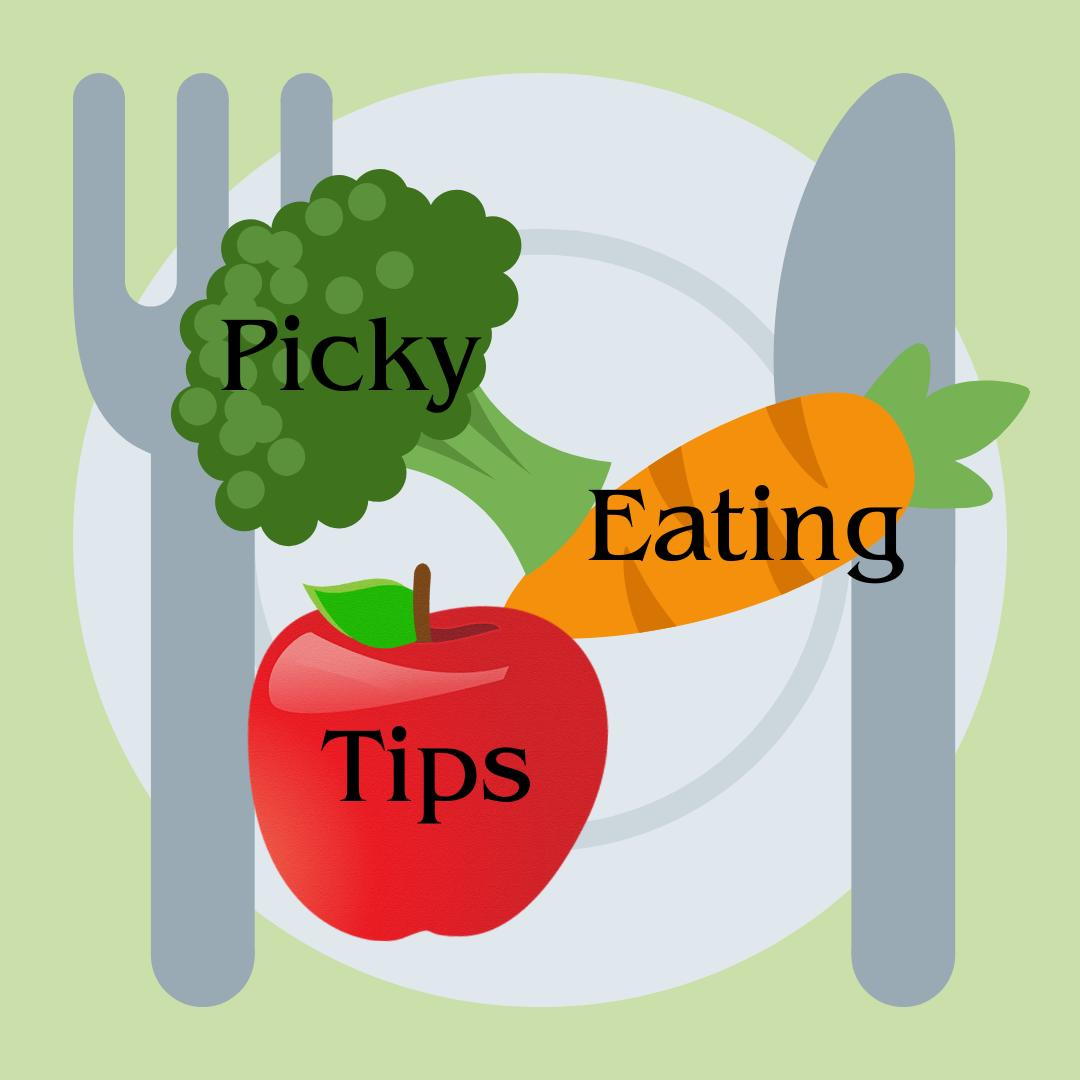
With the start of the toddler years, your child may go through many changes; their dietary intake is often a big one. Picky eating affects many toddlers and can continue to progress as children get older. It most often starts during the preschool years (between the ages of 2-5 years old), as children are seeking more independence and control. Picky eating also becomes more apparent as children develop certain food preferences. Although there is often a concern of picky eaters not getting enough nutrition, the rate of growth slows from infancy into the toddler years, so many children eat less in response to the hunger signals they receive from their bodies. Keep your home food-fight free with some of the AAP’s tips below:
Start by having set times and locations for eating food. Snacking throughout the day can fill a small child’s stomach enough that they do not want to sit and eat a meal. You can even set timed intervals for “open” and “closed” kitchen times. At meal times, try not to apply pressure to finish the plate of food, especially if they do not like it. Setting this type of expectation can turn mealtimes into a chore or worse, a fight. Instead, if a child refuses to eat their food, they may return and try it again at the next time when food is offered (meal or snack).
You can include children in the food shopping and preparation process to help encourage them to eat more. Even giving them opportunities to have sensory play with food can remove some of the barriers and aversions to food. During meals, use dishes and utensils that are kid friendly to make food more inviting. Avoid bribery or punishment to make children eat certain foods, as this negative connotation with the offered food can worsen responses to it.
Finally, remember children often learn from behavior around them. Eat meals as a family as often as possible and offer them the foods you eat, rather than preparing separate meals. Model healthy eating behaviors with the food choices you make for yourself. If a child refuses a food, continue to offer it at meals later on in small amounts; sometimes it can take trying a food 15 times before a child finds they like it. Keep healthy food and snacks available at home as well rather than unhealthy foods that may distract from better options.
If your child is showing extreme aversions to food or if you have concerns about their weight, call to schedule a consult appointment with one of our providers! And for more tips, view this handout by the AAP, or check out this book by the AAP!
Zimlich, R. (July 5, 2022). How to help parents of picky eaters. Contemporary PEDS Journal. https://www.contemporarypediatrics.com/view/how-to-help-parents-of-picky-eaters
AAP Committee on Nutrition. (April 26, 2018). 10 tips for parents of picky eaters. Healthy Children. https://www.healthychildren.org/English/ages-stages/toddler/nutrition/Pages/Picky-Eaters.aspx
